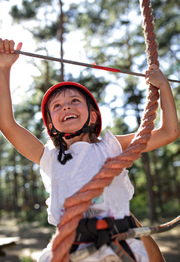Enhancing Outdoor Learning: The Untapped Benefits of School Camps
Exploring the great outdoors through school camps presents a unique and exciting opportunity for learning beyond the traditional classroom walls. These experiences not only provide students with a break from the regular school routine but also offer an array of educational benefits that are often overlooked.
From fostering personal development to enhancing team-building skills, outdoor learning environments can play a pivotal role in a child’s education.
It’s time to discover the untapped advantages of incorporating school camps into the curriculum, highlighting how they can enrich students’ learning experiences and contribute to their overall development.
The Impact of Outdoor Learning on Student Engagement
Outdoor learning environments, such as school camps, offer a refreshing change of scenery that can significantly boost student engagement. When children are placed in new and stimulating surroundings, their curiosity naturally skyrockets. This leads to heightened interest and involvement in learning activities.
The dynamic nature of outdoor settings motivates students to explore, ask questions, and engage with their peers and teachers in meaningful ways. It’s a shift in learning context that can reinvigorate students’ enthusiasm for education, making lessons more memorable and impactful.
Additionally, the informal setting of a camp allows for more flexible teaching methods. Educators can tailor activities to suit the interests and learning styles of their students, providing hands-on experiences that are not feasible within the confines of a classroom. School camps from PGL can help children enjoy educational programs while escaping the confines of the classroom.
Whether it’s navigating through a forest, observing local wildlife, or participating in environmental conservation efforts, these practical experiences deepen understanding and retention of key concepts.
Enhancing Social Skills and Teamwork
One of the most significant benefits of school camps lies in their ability to nurture social skills and teamwork. Away from the usual classroom hierarchies and social circles, students are encouraged to interact with a wider range of peers. This exposure to diverse groups helps children develop empathy, understanding, and communication skills, as they work together to overcome challenges and achieve common goals.
Activities designed to promote teamwork, such as building shelters, orienteering, or participating in group challenges, require students to communicate effectively. They share responsibilities and support one another. These experiences teach valuable lessons in cooperation, leadership, and problem-solving, skills that are essential for personal and academic success. By learning to function as part of a team, students gain confidence in their abilities to contribute to group projects and navigate social situations more adeptly.
Boosting Physical Health and Wellbeing
Participating in school camps also has a positive impact on students’ physical health. The active nature of outdoor education encourages children to move more, engaging in physical activities that differ from typical school sports. Hiking, canoeing, climbing, and other camp activities promote cardiovascular health, strength, and flexibility, contributing to a foundation of physical fitness.
Beyond the immediate physical benefits, being outdoors and active also supports mental health and wellbeing.
- Exposure to natural environments has been shown to reduce stress, improve mood, and enhance concentration.
- The physical exertion involved in camp activities leads to better sleep patterns.
- The break from digital screens and technology allows students to unwind and reconnect with the natural world.
Creating an Appreciation for the Environment
School camps not only cultivate personal and social development. They also instill a deep appreciation for the environment. These outdoor experiences expose students to the beauty and complexity of nature, highlighting the importance of conservation and sustainability. As students learn about local ecosystems, wildlife, and environmental issues, they develop a sense of responsibility towards preserving these resources.
Activities like recycling, wildlife protection strategies, energy conservation and sustainability projects, are all great ways to teach children how to protect the nature around them. These endeavors become more than just concepts taught in the classroom; they are transformed into actionable, meaningful practices that they can take on in their day-to-day life.
By engaging directly with environmental challenges, students can see the tangible results of their efforts, promoting a proactive attitude towards ecological preservation.
In summary, school trips and camps significantly enrich students’ educational experiences. By blending academic learning with practical, real-world applications, these excursions foster independence, curiosity, and a deeper understanding of both cultural and environmental contexts.




